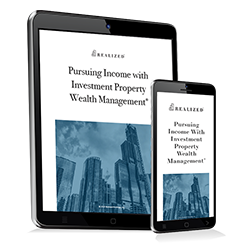
One question that people ask from time to time, for various reasons, is whether they can withdraw money from their retirement plan. Usually, the inquiry is regarding a defined contribution, tax-deferred savings plan, like a 401(k) or a 403(b) program offered through an employer. Still, you might also ask about an IRA you established independently. While the answer to the query is generally "yes," a better question might be: "should I take money out of my retirement plan?" and that answer might be no.
Defined contribution retirement savings plans are intended to comprise one leg of the three-legged support structure of retirement. The other two are defined benefit pension plans, which are disappearing quickly from the landscape of private-sector employers and Social Security. Generally speaking, 401(k) plans are offered to employees at private sector, for-profit companies. In contrast, the 403(b) plan is more likely to be provided by nonprofit organizations like schools, hospitals, and some 503(c) corporations. In either case, the participant makes contributions with pre-tax earnings. The interest or other appreciation in the fund grows tax-free until the participant makes withdrawals, usually after retirement. The beauty of the 401(k) and 403(b) plans (aside from the tax-free contributions and earnings) are the employer matching amounts. Most employers match a certain level of contribution made by the employee, providing an immediate return on the investment. These matches will have a vesting period, often five or more years.
If you need to remove funds from your account before retirement, there are usually two options: loans or hardship withdrawals. Taking a loan against the 401(k) balance is popular for making a down payment on a first home. Many plans allow loans; some permit the plan owner to borrow up to half of the account's vested balance. The plan's administrator determines the interest rate, and you are paying interest to yourself. Thus, people often think that this is a suitable borrowing method, but it is a lost opportunity. The money you borrow is not growing while it is out of the account, and most people stop or reduce their contributions while repaying a loan. Indeed, some plans don't allow contributions at the same time a loan is in effect. Also, you make loan payments with taxed income, not pre-tax earnings.
If you take a hardship distribution instead of a loan, and you are under 59 ½, you will pay a penalty of 10 percent of the amount withdrawn, which is substantial, in addition to the state and federal taxes due. If you are aged 55 or over and have left or lost your job, you can withdraw funds without the penalty, although you will still owe the standard taxes. If you take a withdrawal from an IRA to purchase a first home (or the first within two years), you won't pay the 10% penalty on a distribution of $10,000 or less. You may also tap an IRA without penalty for payment of certain medical expenses and health insurance premiums.
Currently, people impacted by the Covid-19 pandemic (either by being diagnosed with the virus or suffering a significant financial hardship) are temporarily exempt from the 10% penalty on withdrawals. That CARES ACT provision is due to expire at the end of 2020. But keep in mind that even if available, the choice to withdraw from your tax-advantaged retirement account isn't usually the best choice. It is taking money from your future self and preventing those funds from working on your behalf.



